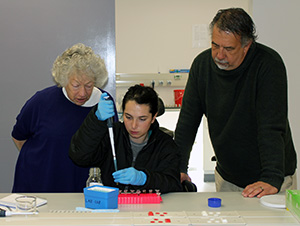Latest News Archive
Please select Category, Year, and then Month to display items
02 November 2023
|
Story Kekeletso Makau
|
Photo SUPPLIED
 The UFS Heads of Mission Breakfast event attracted a distinguished delegation of foreign diplomatic missions.
The UFS Heads of Mission Breakfast event attracted a distinguished delegation of foreign diplomatic missions.
The second Heads of Diplomatic Mission breakfast was hosted by the University of the Free State (UFS) in collaboration with the Mapungubwe Institute for Strategic Reflection (MISTRA) in Pretoria, South Africa on 26 October 2023.
The event served as an opportunity to position the UFS as a preferred partner for international collaboration in higher education, research, and innovation – following the success of the inaugural event in 2022. More than ten diplomatic missions were represented by distinguished foreign mission representatives who shared in the deliberations on this year’s theme, namely partnerships and collaborations.
The keynote address was delivered by the UFS Vice-Chancellor and Principal, Prof Francis Petersen, with contributing presentations from MISTRA researcher Laurence Caromba, UFS Professor of Pharmacology, Prof Motlalepula Matsabisa, and Senior Lecturer from the Centre for Gender and Africa Studies, Dr Grey Magaiza. A key goal of Prof Petersen’s presentation was to highlight the benefits of reciprocal collaboration and co-creation of knowledge with international partners, including industry partners. Contributing presentations posited the UFS as a partner of interest in research, innovation, and technology in the international arena and showcased the value of university and diplomatic partnerships in support of the UFS Internationalisation Strategy and Vision 130.
Caromba, a MISTRA researcher, reiterated the importance of collaboration between universities, research institutes, and the diplomatic community, further reaffirming the partnership value proposition entrenched in the UFS-MISTRA collaboration in co-hosting this year’s event. MISTRA, a renowned influential think tank, served as an excellent partner for the event.
The UFS currently boasts more than 100 vibrant international partnerships and is the incumbent coordinator of large EU-funded Erasmus+ projects among South African universities, with UFS researchers having co-authored more than 5 000 scientific publications with universities worldwide (2018-2022).
An engaging question-and-answer session concluded with insights and further action items for continued engagement post the event.
Monkey research attracts international attention
2016-07-11

Prof Trudy Turner from the University of
Wisconsin-Milwaukee and Prof Paul Grobler
from the Department of Genetics at the
University of the Free State, together with one
of the students researching monkey genes.
Photo: Siobhan Canavan
For this year’s Summer School programme, Prof Paul Grobler, from the University of the Free State Department of Genetics focuses on research about the conflict between monkeys and humans in areas where monkeys are regarded as problem animals.
Global expert part of research
This year, Prof Grobler is hosting a group of students and lecturers from the United States of America (USA). The group includes Prof Trudy Turner from the University of Wisconsin-Milwaukee (UWM), a global expert on vervet monkeys. She has been working with the Department of Genetics at the UFS for the past fifteen years, and has also been appointed as an Affiliated Professor in the department.
“The Summer School programme is an opportunity for the American Primatology students to gain practical experience in Africa,” says Prof Grobler.
International interest in Summer School
This year’s Summer School programme involves four lecturers and nine students. The lecturers are from the University of Wisconsin-Milwaukee (UWM), the University of California, Los Angeles (UCLA), Boston University, and Central Washington University.
“We use the genetic information to determine
how monkeys historically infiltrated the
different areas in South Africa.”
This year’s focus is on the genetic structure of the monkeys in South Africa, and research that is being done on the differences and similarities in monkeys from different areas. “We use the genetic information to determine how monkeys historically infiltrated the different areas in South Africa,” says Prof Grobler.
Local nature reserve acting as host
The group will perform field work, including observing monkeys in the Soetdoring Nature Reserve, as well as laboratory work in the department, where they will be assisted by two laboratory technicians.
Two years ago, Prof Grobler and his department tested this idea on a smaller scale, and now they hope to make this a regular event.